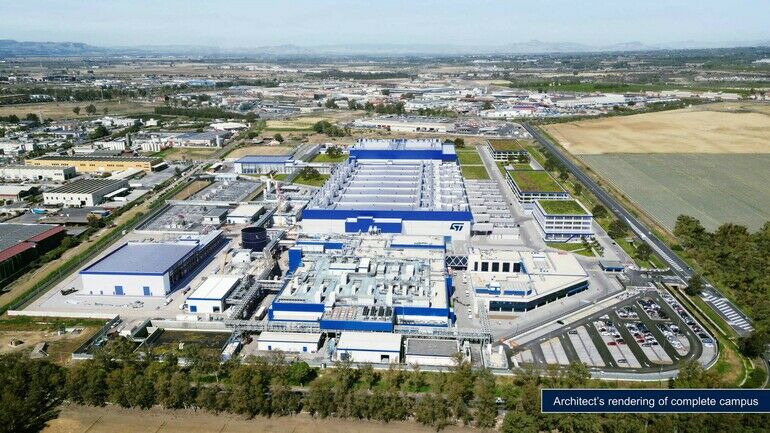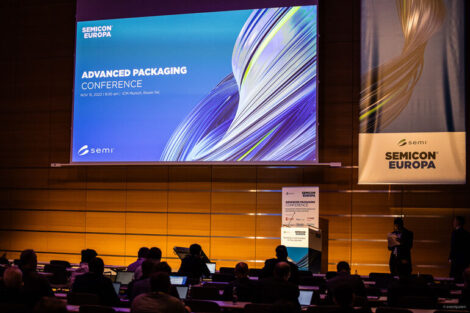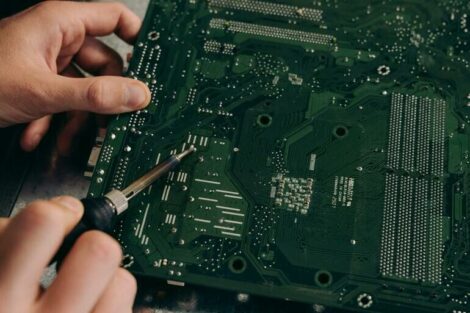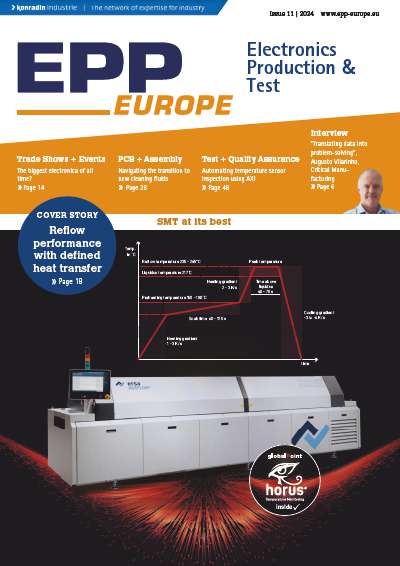STMicroelectronics has announced it will build a new high-volume 200mm silicon carbide (SiC) manufacturing facility for power devices and modules, as well as test and packaging, in Catania, Italy. Combined with the SiC substrate manufacturing facility currently being prepared on the same site,these facilities will form what the company calls its ‘Silicon Carbide Campus’. This campus, the company says, fulfils its plan for fully vertically integrated SiC capabilities from R&D to manufacturing, from substrate to module, on one site, and enabling automotive and industrial customers in their shift to electrification and higher energy efficiency.
The project will cost a projected EUR 5 billion over a multi-year investment program including 2 billion euros support provided by the State of Italy in the framework of the EU Chips Act.
“The fully integrated capabilities unlocked by the Silicon Carbide Campus in Catania will contribute significantly to ST’s SiC technology leadership for automotive and industrial customers through the next decades,” said Jean-Marc Chery, President and Chief Executive Officer of STMicroelectronics. “The scale and synergies offered by this project will enable us to better innovate with high-volume manufacturing capacity, to the benefit of our European and global customers as they transition to electrification and seek more energy efficient solutions to meet their decarbonization goals.”
Global SiC ecosystem
The Silicon Carbide Campus will serve as the center of ST’s global SiC ecosystem, integrating all steps in the production flow, including SiC substrate development, epitaxial growth processes, 200mm front-end wafer fabrication and module back-end assembly, as well as process R&D, product design, advanced R&D labs for dies, power systems and modules, and full packaging capabilities. This will achieve a first of a kind in Europe for the mass production of 200mm SiC wafers with each step of the process – substrate, epitaxy & front-end, and back-end – using 200 mm technologies for enhanced yields and performances.
The new facility is targeted to start production in 2026 and to ramp to full capacity by 2033, with up to 15,000 wafers per week at full build-out. The total investment is expected to be around five billion euros, with a support of around two billion euros provided by the State of Italy within the framework of the EU Chips Act. Sustainable practices are integral to the design, development, and operation of the Silicon Carbide Campus to ensure the responsible consumption of resources including water and power.
About SiC
Silicon Carbide (“SiC”) is a key compound material (and technology) consisting of silicon and carbon that offers several advantages over conventional silicon for power applications. The wide bandgap of SiC and its intrinsic characteristics – better thermal conductivity, higher switching speed, low dissipation – make it particularly suitable for the manufacturing of high-voltage power devices (notably above 1,200V). SiC power devices, in the form of SiC MOSFET sold as bare die and full SiC modules, are especially useful in electric vehicles, fast-charging infrastructure, renewable energies and various industrial applications including datacenters, as they offer higher electric currents and lower leakage than traditional silicon semiconductors, increasing energy efficiency. SiC chips are however more difficult and more costly to manufacture than silicon chips with many challenges to overcome in the industrialization of the manufacturing process.












